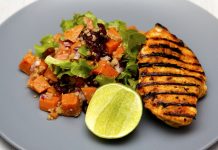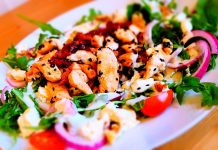
Your comments on weight loss give much advice. I feel your suggestion, however, of consulting a dietitian for sound advice, is not the only recourse. There are many articles by nutritionists to rely on.
The Herbal Life Plan is one such alternative and people may tend to shy away from even looking at any of the other preparations on the market for fear of being fooled by them. While it is good to be wary, perhaps someone so very much in need of a safe product such as the one we distribute would never even open his or her mind to the possibility of help that is inexpensive and beneficial. Perhaps, you could look this over and throw out some more sound advice.
I have reviewed the information about the Aloe Vera line including Forever Lite nutritional diet and Fast Break bars. Research supports that a successful weight reduction diet includes slow weight loss, changes in eating behaviors, and learning how to eat to maintain weight loss so that weight is not regained.
I have not found any research to support that a person must buy a powder diet or supplement to achieve weight loss or good health. My concerns regarding diet product powders, breakfast bars, and dietary supplements are based on research and my clinical experience with patients.
Most do not perform as advertised and create an aura of success based on one food. No one magic food will cause weight loss. Also, the powders or bars will often contain more calories and fewer nutrients than eating a variety of healthy foods.
Persons without a degree in nutrition provide these diets to the public. The public lacks guidance in the use of these products and misuse is frequent. Registered Dietitians are the appropriate resource persons to see with a college degree in nutrition science and nutrition therapy training for working with patients.
Most physicians will admit their knowledge of nutrition is limited as the majority do not take a nutrition class in medical school. People with a Ph.D. are called the doctor yet may have no nutrition education. Ask about the educational background of the person who is giving you nutritional advice. People with an interest in nutrition and without nutrition education have started calling themselves nutritionists, which is misleading. Actually, a nutritionist is a person with a master’s degree in nutrition. Over 44 states license who can call themselves a nutritionist or dietitian which has helped the public discern who is a nutrition expert.
Nutritional adequacy based on the RDA (Recommended Dietary Allowance) does not ensure an appropriate formula. Your body’s first need is for energy (fuel) to function. Your body will first fulfill its need for calories and it is capable of burning protein for fuel. Semi-starvation diets (Aloe Vera is one of them) of fewer than 900 calories will not spare protein that is needed for growth and repair of tissues as all calories less than 900 will be burned as fuel. Most of these liquid diets are lacking in fiber found in real food.
Cost is another factor. The amount of money spent by the public on diet products amounts to billions each year. I am very concerned about how much of the food dollar is spent on weight loss diets and nutritional supplements. When I go to the grocery store, I find that a bag of groceries costs between $10 and $15. Take a look at the amount of money you spend on these nutritional supplements each month and how many bags of food you could buy instead. Your food dollars would be more economically spent on buying nutritious food.
The public is faced with many products claiming good health and weight control. So far, the majority of these “health products” do not meet the nutrition from eating a variety of foods from the My Plate – meat, milk, bread, fruits, vegetables, and healthy oils.



